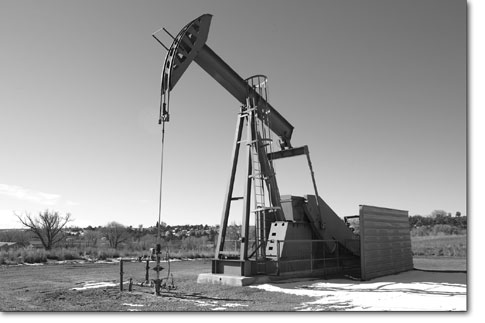| ||
Oil & Gas 101
by Will Sands Having trouble with the difference between crude and coalbed methane? Still mixing up hydraulic fracturing and directional drilling? Or just looking for answers in a region increasingly dominated by natural gas development? A new course in the Fort Lewis College Extended Studies Program is hoping to meet these and other needs. “Oil & Gas 101: Basic Information for Stakeholders” kicks off on March 7 and will identify the impacts of oil and gas development in La Plata County and northern New Mexico. More importantly, it will address ways of lightening those impacts and resolving conflicts. The class will be taught by Susan Franzheim, who has produced seven regional conferences and workshops related to oil and gas development and is the founder of the Coalition of Gas-drilling Solutions. Franzheim’s work on local oil and gas issues has earned accolades in high places. “Susan has been the preeminent authority on La Plata County oil and gas issues and many people look for her as the voice of reason,” noted Colorado State Representative Mark Larson. While Franzheim is flattered by the statement, she is quick to note, “There just can’t be any authority on these issues. There’s just too much. It’s too dynamic. One person can’t stay on top of it all.” However, Franzheim, with the help of Oil & Gas 101, is hoping to help more local residents come to grips with the pressing issue. “I see the class as a springboard for an ongoing dialogue between landowners, citizens and the industry,” Franzheim said. “The underpinning is that the more we’re grounded in oil and gas basics, the more we can generate reasonable expectations and desired results in our own back yards.” The class comes at a fitting time in La Plata County’s history, according to Franzheim. Three different energy companies have recently received approval from the Colorado Oil and Gas Conservation Commission to double their number of La Plata County wells. These approvals will make for more local impacts and more opportunities for misunderstanding. “There have been increased volumes of people swimming in waters of distrust,” Franzheim said. “Now, we’re going to see a very large increase in the number of wells in La Plata County.” She also is hopeful that the class will highlight another less-publicized increase. “Because of increased impacts, I believe there are increased opportunities to resolve differences,” Franzheim said. “People do have more of a voice. They just don’t realize it.” The class has been structured largely around a panel of experts. Franzheim plans to retain 13 “oversight advisors” with backgrounds ranging from petroleum supply and development to land management and environmental review. With this in mind, Franzheim described her coming work as that of an editor. “I am very, very concerned that, with my mission of fueling more vehicles on the information highway, I could give inaccurate information,” she said. “That’s why I’ve invited oversight advisors. If at any time, I misspeak, they will take the microphone.” Franzheim also hopes that the course will appeal to a broad audience. The course is based upon the notion that “everyone is missing some basic oil and gas information,” and that also includes people within the industry. “Oil and gas people need help on ways to more successfully work with residents in the community,” she said. “I’m not saying they’re looking for that, but this course is designed to offer that kind of support.” On the flip side, Franzheim said she has a wealth of information for the citizen who has energy development coming onto their property or immediately next door. She learned those lessons first hand by dealing with “her well,” a natural gas development adjacent to her 80-acre La Plata County ranch. “People want drilling to go away,” she said. “That’s not going to happen. It’s like that song, ‘If you can’t be with the one you love. Love the one you’re with.’” Franzheim then added, “The more information you have, the less upset you’re going to be. You’re still not going to want the well on your property. But the course will give people opportunities for action in their self interest.” Enrollment for Oil & Gas 101 is open to anyone in the community, and there is no cap on the number of students. Franzheim explained that she will accommodate any number. “I’ve said that I’ll teach the course for two people or more,” she said. “Those two have a constellation of people that they’ll impact. If a large number takes the class, I’ll expect the college to make the ballroom available.” •
|


